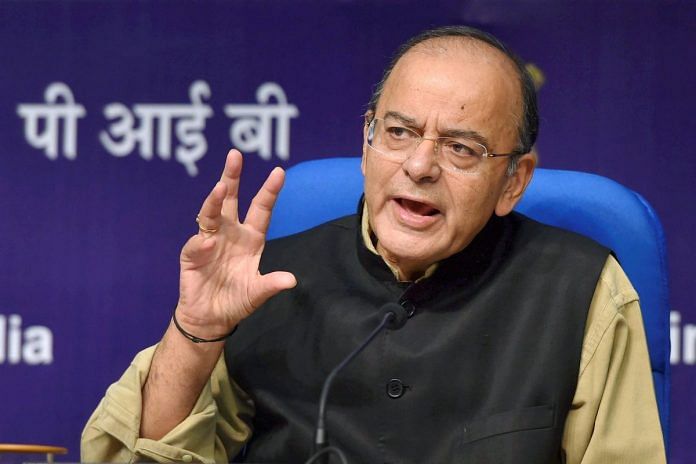Sending the right feelers to industry would mean laying down a roadmap for bringing in land and labour reforms, infrastructure development, etc.
When Prime Minister Narendra Modi’s government assumed charge in 2014, and built a roadmap for the next five years, promoting ‘ease of doing business’ was an important constituent in its scheme of things. The PM, for the first time, made a reference to this in his Independence Day speech four years ago. At that time, India’s position, as per the World Bank report, was 142 out of a total of 190 countries. The government set an ambitious target to break into the top 50 during its tenure.
After three years and adopting several measures, India’s position has risen several notches to 100. (Now ranked 19 out of a peer group of 53 lower-middle income countries). Although getting into the top 50 would still require consistent efforts, the present leap is significant considering India’s ranking has hovered at 130-140 for several years.
Though the progress has created quite a buzz, India still has a long way to go in competing with the best in the world. A good indicator is India’s position amongst BRICS countries; at present, we are only above Brazil and almost 25 places below China.
The important question is: What should be the focus areas to make another quantum jump from the existing position? The yearly publication by the World Bank on ‘ease of doing business’ uses 10 parameters that are considered most important for determining a country’s position from a ‘business-friendly’ standpoint. Some of these criteria include ease of registering property, construction permits, obtaining connections to basic utilities such as electricity and water, availability of credit, labour laws, paying tax and contract enforcement.
The government has taken several important steps, with the biggest gains recently coming from the rankings with respect to paying taxes, getting credit, and resolving insolvency. The mechanism to grant credit is being overhauled through bank recapitalisation and writing-off non-performing assets. GST has finally been implemented, albeit with a rocky start, and insolvency laws are finally being used to unclog stressed assets.
The government is rightly placing much emphasis on digitisation, with efforts being made to introduce it in every aspect of governance, reducing the time involved in seeking approvals, minimising discretionary powers, bringing improvement in areas such as obtaining registrations and permits for starting a business, tax payment mechanism, obtaining building permits etc.
The big ticket reforms that could catapult India significantly are dealing with criteria in the rankings such as starting up a business, construction permits, registering property, and enforcing contracts. Many of these criteria require significant action and intervention by state governments.
Political will has also been lacking for overhauling archaic labour laws, and in many cases, trade unions are strong with political affiliations that make it impossible to overhaul these laws.
Land acquisition is another area of concern for investors as complex laws in this area result in the process stretching up to several years, making the proposed projects unviable. Technology can be used effectively for land registration purpose, records as well as speeding up the dispute resolution process in the country.
Further, steps should be taken to introduce a single-window clearance system through the process of e-governance, which can reduce the number of days required for seeking approvals for starting a new business. A number of state governments have introduced or are experimenting with a single-window approval mechanism for investors in efforts to attract investment.
The industry wish list for making the business climate more conducive is by and large similar to the parameters that have been spelt out by the World Bank. Obtaining permits for usage of land, resolving disputes, seeking permits for starting a business, enforcement of contracts etc are some of the pain points faced by every business sector in our country. For instance, the manufacturing sector frequently faces labour-related issues, lack of access to 24×7 electricity; the infrastructure sector faces bottlenecks relating to land acquisition, disputes relating to ownership of land, access to low-cost capital etc.
The finance minister, while sharing the report, correctly mixed caution with optimism by stating that the path to global competitiveness is always work-in-progress. To remove bottlenecks faced by the industry, a sustained and dedicated approach is needed. Though ushering the reforms need not wait for an annual event such as the Budget, but it can be a good starting point for declaring the intent of the government.
One of the forms of sending the right feelers to industry could be by laying down a roadmap for bringing in the land and labour reforms, infrastructure development, fast-tracking of digitisation process, setting up of single-window clearances etc. For instance, in the current year’s Budget, a six-monthly target could be fixed for carrying out improvements in identified core areas, which could be followed by a quick and honest appraisal. Demonstrating this intent in the Budget in the form of definitive action plans would certainly enable creation of a feel-good factor for every sector of the economy.
It is also important that for encouraging new investment, several important considerations are also attended to, not just the factors specified above. Macro-economic fundamentals such as infrastructure development, robust financial markets, stable foreign and economic policies and political stability are as important as any other criteria.
Effective and innovative ideas to bring efficiency in these parameters could be the turning point to make India an economic superpower in every sense.
Rohinton Sidhwa is partner, Deloitte India; G. Chandrashekhar is director, Deloitte Haskins & Sells LLP



